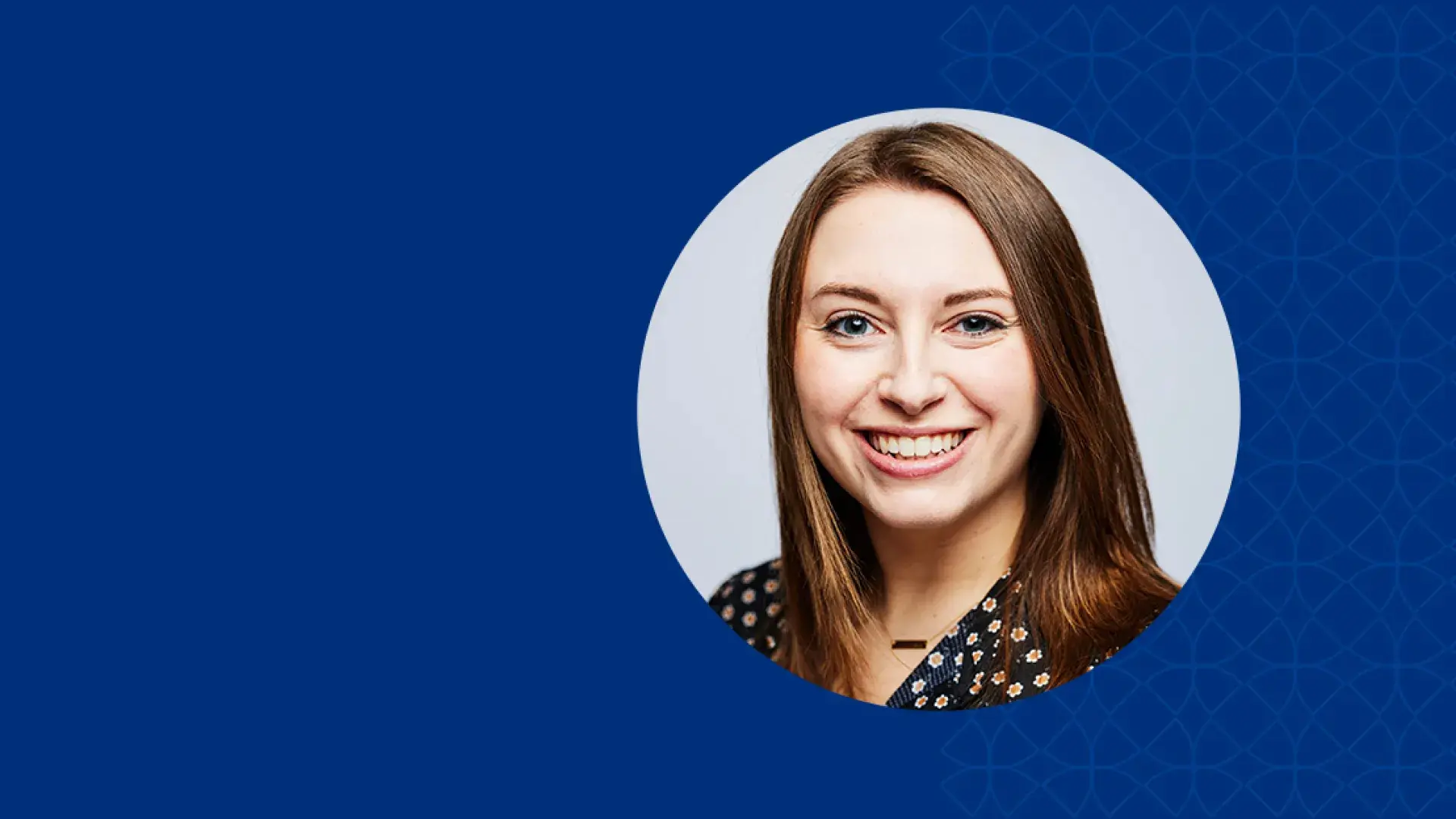
Genetic Counselor Awareness Day is hosted the second Thursday in November each year. To recognize this day and to showcase an alum from one of our newer graduate degree programs, the IHP Office of Alumni Relations invited Abigail Sveden, MS-GC ’22, to share her experience moderating her first panel discussion at the Week in RARE conference, which took place in October. The conference was sponsored by Global Genes, a nonprofit “dedicated to eliminating the burdens and challenges of rare diseases for patients and families globally.” Sveden is a translational genomic medicine specialist at the Rosamund Zander Translational Neuroscience Center, based out of Boston Children’s Hospital.
1. Can you share, in a sentence or two, about what a translational genomic medicine specialist does?
As a translational genomic medicine specialist, I contribute genetic and genomic expertise to a clinical research team dedicated to working toward improving the lives of individuals with rare neurodevelopmental disorders. Through understanding of genetic mechanisms and clinical features of genetic conditions, I help to define the spectrum of genetic conditions, address gaps in preparing for clinical trials, and serve as a resource for interpretation of uncertain and challenging variants.
2. What is the Global Genes’ Week in RARE conference?
The Week in RARE is an event for the rare disease community to come together to learn from each other about how to best support rare diseases through advocacy, research, and collaboration. The event provides opportunities to learn and connect through expert office hours, discussion, and sessions focused on supporting rare family experiences, advocacy organization, and research collaborations. The conference offers a unique opportunity for patients, caregivers, advocates, researchers, providers, and industry partners to meet and share ideas and perspectives, enriching each other’s work through common passions.
3. How did you become a panel moderator?
Colleagues encouraged me to submit a proposal for my panel, which focused on education about variants of uncertain significance (VUS) and how to navigate them. A few months later, I got the exciting news that my proposal was accepted by Global Genes, and that they were interested in including Michele Herndon, program director of the Undiagnosed Diseases Network Foundation and rare disease parent, as a panelist. Following enlightening conversations with Michele and my other proposed panelists, Dr. Christina Gurnett and Dr. Dustin Baldridge, we decided that it would be fitting for me to moderate the discussion. By moderating, I was exercising the genetic counseling skills of educating others and facilitating conversations.
4. What impact did this experience have on you professionally?
Attending the Week in RARE and moderating the VUS panel has truly brought new meaning and pride my work. Working in clinical research, my interactions with patients and families whose lives are directly impacted by my work are somewhat limited. Getting to present to and talk with families and advocates who truly believe in the importance of my team's efforts, and who may use information gained from the panel to move toward understanding and possibly diagnoses, has brought new drive and passion to my work.
In addition to the renewed purpose I feel, I'm certain that the connections and impression I made through the event will also bring new opportunities for me professionally, and for the Rosamund Stone Zander Translational Neuroscience Center, which I was proud to represent. I look forward to reconnecting with those I met during the event, and collaborating with those who share similar goals.
5. What impact will this conversation have on the field?
For patients and caregivers, many expressed that the conversation gave them a path forward in their journey toward a genetic diagnosis. They learned about what goes into the classification of a genetic variant and the ways that research can build evidence toward certainty over time. For clinicians and researchers, me included, the discussion gave greater insight into the thoughts and feelings experienced by families undergoing genetic testing, giving us a better understanding of the importance of being transparent and building trust with patients and research participants.
